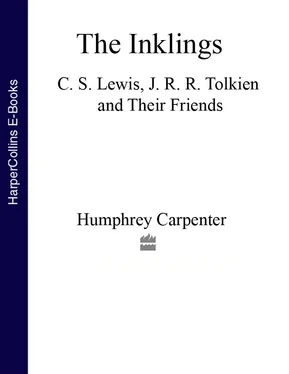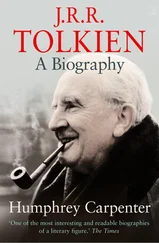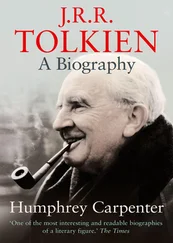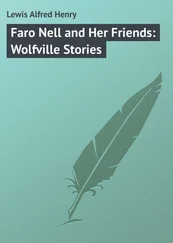*
Lewis and Barfield were at this time engaged in a battle of ideas.
Barfield had for several years been a disciple of Rudolf Steiner’s Anthroposophy, a form of religious philosophy which offers a very idiosyncratic account of the nature of the world and of the relationship between God and Man. 1Lewis was at first alarmed at his friend’s enthusiasm for Steiner’s teachings, with their occasional use of the word ‘occult’ and their inclusion of such doctrines, as a belief in reincarnation. But he discovered that at close quarters Anthroposophy radiated, at least in his opinion, what he called ‘a re-assuring Germanic dullness which would soon deter those who were looking for thrills’. However, he was still disturbed that Barfield should adopt any kind of supernaturalism, for he himself was trying to be utterly rational in his philosophical outlook and to exclude any notion of the ‘other’ from his view of the universe. He was prepared to admit the existence of the imaginative thrill or romantic longing which he had experienced since childhood, and which he called ‘Joy’; but he refused to admit that it had anything to do with objective truth. He declared to Barfield: ‘Imaginative vision cannot be invoked as a source of certainty – for any one judgment against another.’ In other words, it was splendid to have sensations of delight when you saw a sunset or read a poem, but this told you nothing objective about the world. The imaginative must be kept strictly apart from the rational.
Barfield disagreed utterly. Besides following Steiner’s teachings, he had for many years admired and studied Coleridge’s writings on the Imagination; and he began to argue this point with Lewis, both on the walking tours and in a correspondence that they soon named ‘The Great War’. In particular, Barfield tried to persuade Lewis that purely rational argument of the kind that he had used since he was tutored by Kirkpatrick often depended on artificial terms and had little to do with the actual business of life. Barfield also did his best to convince Lewis that imagination and aesthetic experience did lead, if not automatically to objective truth, then at least to a better understanding of the world.
Lewis did not accept all Barfield’s points. But as a result of the ‘Great War’ he ceased to separate his emotional experiences from his intellectual process, and came to regard ‘Joy’ and poetic vision, in their way, as truthful as rational argument and objective fact.
*
If Greeves and Barfield were one degree higher than Tolkien in Lewis’s hierarchy of friends, his brother Warnie was above even them.
After leaving school, Warnie had become an army cadet, and served in the Royal Army Service Corps for the entire First World War. After the war he remained in the army as a regular officer, serving in England and overseas, and using the Lewis family house in Belfast as a home base – for like Jack he had remained unmarried. In 1929 their father died, and the Belfast house was sold. As a result, Warnie needed another home, especially as he was approaching his middle thirties and planned to leave the army soon on retirement pay, which, together with small private means, would be sufficient to keep him. Jack and Mrs Moore invited him to make his home with them, and Warnie accepted readily, though privately there were feelings of caution on both sides. Warnie knew that ‘Minto’ could be very demanding, while she and Jack felt in their turn that it was a sacrifice of their privacy. But the two brothers were chiefly delighted at the prospect of each other’s company.
Warnie and Jack were fairly similar physically, both being heavily built with broad faces, though Warnie was more thickset and was tanned from his years abroad. They dressed similarly in baggy flannel trousers and tweed jackets, and they shared a liking for pipe tobacco and beer and country walks. Warnie’s formal education had stopped far short of Jack’s, but he kept up his reading and was widely knowledgeable in English literature and even more so in French history, particularly of the seventeenth century. In English literature he regarded himself as a mere amateur, but his sheer enthusiasm, uncomplicated by any preconceived notions of what he ought or ought not to like, made him a discerning critic. Jack much appreciated this quality in his brother. After receiving a letter from Warnie on service abroad, enthusing about The Faerie Queene, he wrote to him: ‘I wonder can you imagine how reassuring your bit about Spenser is to me who spend my time trying to get unwilling hobble-de-hoys to read poetry at all? One begins to wonder whether literature is not, after all, a failure. Then comes your account of the Faerie Queene on your office table, and one remembers that all the professed “students of literature” don’t matter a rap.’ In the next few years Jack Lewis was to develop a persona as the ‘plain man’ of literary criticism. Perhaps that role was influenced by the unaffectedly ‘plain’ qualities of his brother’s taste.
Not that Warnie Lewis was in any sense intellectually crude. But there was something ‘simple’ about him in the best and most positive sense of the word. ‘Dear Warnie,’ Jack remarked to Arthur Greeves, ‘he’s one of the simplest souls I know in a way: certainly one of the best at getting simple pleasures.’
It was largely this quality of getting the best out of ordinary life that made Warnie Lewis a first-rate diarist. He kept a record of daily events intermittently throughout his adult years. Here, for example, is his entry for 21 December 1932, shortly after he had come from foreign service and had at last retired from the army:
To-day, I got up early, and went to the hall door where I found The Times containing the announcement which I have been dreaming of for years – ‘Capt. W. H. Lewis retires on ret. pay (Dec. 21)’. And so, after eighteen years, two months, and twenty days, my sentence comes to an end, and I am able to say, like Wordsworth, that I have
shaken off
The heavy weight of many a weary day
Not mine, and such as were not made for me.
But so far from grousing, I am deeply, and I hope devoutly thankful.
It has been a good bargain: how many men are there, who, before they are forty, can struggle free, and begin the business of living?
In 1930 the Lewis-Moore ménage moved to the Kilns, a house at the foot of Shotover Hill not far outside Oxford city and on the edge of the village of Headington Quarry. The house was named after the brick kilns that stood nearby; the garden was the size of a small park, with eight acres of land rising steeply up a wooded hillside, and broken by a lake which could be used for bathing and even punting. Chiefly thanks to funds from the sale of the Belfast house, the Lewis brothers and Mrs Moore were able to raise the sum asked for the property, and it became their home late in 1930. After settling in with Jack and ‘Minto’, Warnie took stock of his new life, of the house in its idyllic setting, of the undeniable domestic tensions, and also of the pleasant daily routine that he envisaged. ‘I reviewed the pros and cons’, he wrote in his diary, ‘and came to the conclusion that on balance, I prefer the Kilns at its worst to army life at its best: the only doubtful part being “Have I seen the Kilns at its worst?”’
*
By the beginning of September 1931 eleven years had passed since Jack Lewis had stopped being a dogmatic atheist.
As long ago as 1920 his study of philosophy had led him ‘to postulate some sort of God as the least objectionable theory’, though he added, ‘of course we know nothing’. The notion of an ultimate truth made sense to him because, as he remarked in 1924 when commenting on Bertrand Russell’s free-thinking idealism, ‘our ideas are after all a natural product’, and there must be some objective standard, some ultimate fact to explain them. On the other hand ‘God’ still seemed a crude and nursery-like word, and for several years Lewis used other terms to describe his notion of fundamental truth. During this time he was, like most of those who studied philosophy at Oxford in the early nineteen-twenties, still accepting the work of Hegel and his disciples, and as a result he chose Hegelian expressions such as ‘the Absolute Mind’ or just ‘the Absolute’.
Читать дальше












